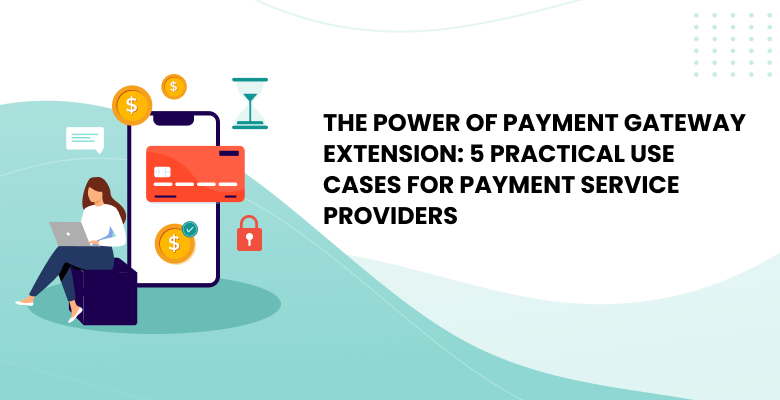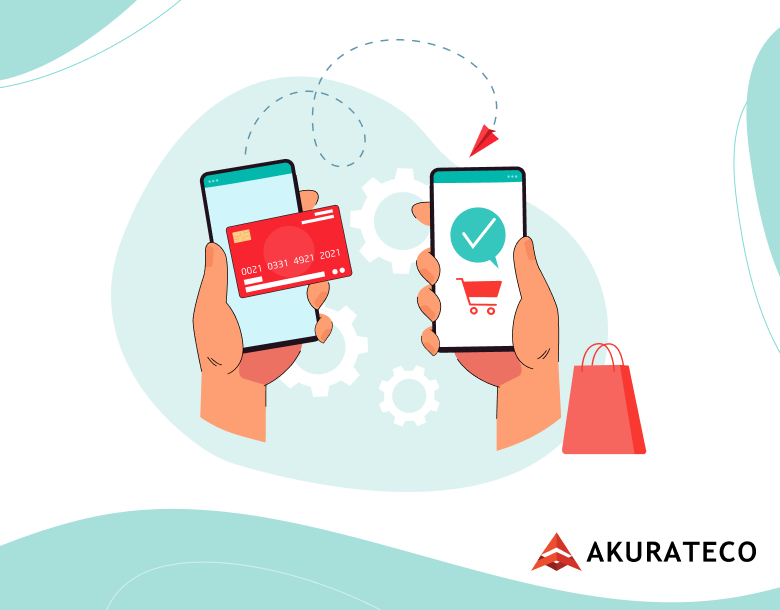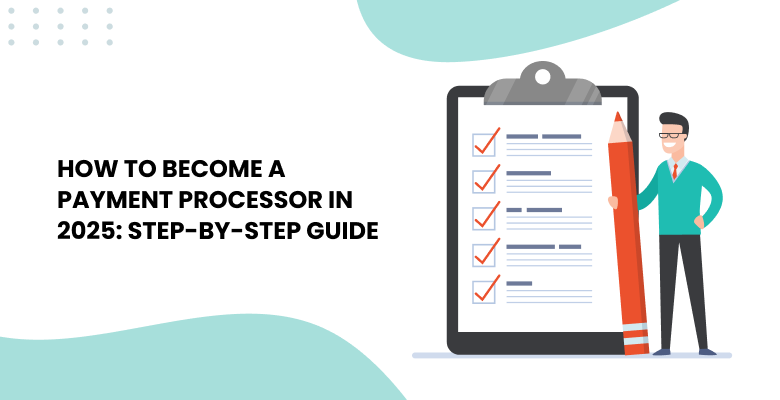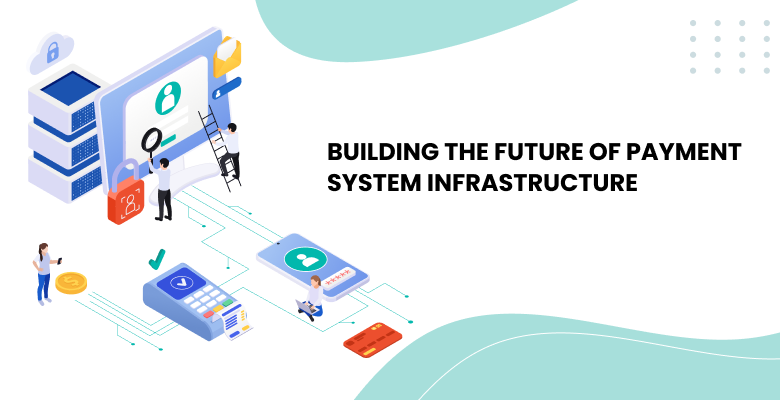
In today’s fintech world, flexibility and speed of integration for new payment solutions have become key success factors for PSPs (Payment Gateway Extension). On the other hand, the development team usually spends considerable resources and time implementing new payment methods, connecting additional providers, or setting up complex routing logic.
This is where the Payment Gateway Extension concept can help a lot, enabling PSPs to extend their capabilities without extensive and time-consuming integrations. This article will analyze Payment Gateway Extension and its benefits to payment service providers. We will discuss five practical use cases that will help PSPs adapt faster to market changes, reduce costs, and boost profitability.
What is a Payment Gateway Extension?
Payment Gateway Extension, a user-friendly technology, empowers PSPs (payment service providers) to enhance their payment systems’ functionality easily. It facilitates a seamless connection of the existing PSP payment platform with an external payment gateway via an open API (Application Programming Interface). This approach ensures the quick addition of new payment methods, connection with additional providers, and implementation of advanced technologies, all without altering the payment solution’s core architecture.
With Payment Gateway Extension, PSPs can significantly reduce the time spent on payment processing, transaction routing, and technical support. Instead of investing months in developing and certifying new integrations, providers can access various payment solutions, including bank acquiring services, alternative payment methods (e-wallets, cryptocurrencies), fraud management, and KYC/AML tools.
Thus, the Payment Gateway Extension has become a strategically important tool for PSPs seeking scalability, high speed of adaptation to market changes, and reduced operating costs. It expands functionality and increases payment conversion through intelligent routing, global intelligent payment routing, card tokenization, and an improved risk management system.
How Payment Gateway Extension Works
A payment gateway extension facilitates the processing of transactions. It serves as one interface point of contact for a Payment Service Provider (PSP) to multiple acquiring banks, payment providers, and fraud services. This eliminates integrating individually with every provider, saving funds and technical complications.
There are two general ways to implement a payment gateway extension:
1. Gateway-to-Gateway Connection
In this model, the PSP is linked to a main payment gateway that sends transactions to several acquiring banks and alternative payment providers.
With this method, PSPs can:
- Add payment methods instantly without developing new integrations.
- Benefit from built-in fraud protection, smart transaction routing, and reconciliation capabilities.
- Avoid regulatory burdens, as the main gateway will take care of compliance.
2. Direct Aggregation through a Single API
This approach involves implementing a single API that connects multiple payment providers under one interface.
Key advantages are:
- Smooth access to multiple payments through a single connection.
- Sophisticated routing of transactions for the highest approval rates and lowest expenses.
- Unified fraud management without disrupting existing infrastructure.
Adopting a payment gateway extension gives you flexibility and scalability to respond quickly to new market demands without lengthy and costly integrations. If you’re interested in the process of setting up your own platform, you might want to explore how to create a payment gateway to ensure a tailored, scalable solution for your business needs.
Key Benefits for Payment Service Providers
Using a payment gateway extension opens up several benefits for PSPs, including scaling, optimizing, and innovating without the burden of complex integrations. Here’s how it improves operations and increases efficiency:
Faster Time-to-Market
No complex integration is required to enable new forms of payment for immediate use.
Optimized transaction routing
Reap higher approval rates by capitalizing on complex transaction logic.
Cost efficiency
Avoid high development costs and benefit from the aggregated transaction volume.
Access to bleeding-edge technology
Quickly introduce network tokens, AI-powered fraud detection, and other innovations.
Scalability and flexibility
Grow your payment capability with your evolving business needs.
5 Real-World Use Cases of Payment Gateway Extension

Currently, the rapidly changing face of digital payments pressures competitiveness to be agile, scalable, and cost-efficient for PSPs. However, integration of new payment methods, optimization of transaction flows, and evolving industry standards typically require intensive development efforts and resources.
Payment gateway extensions make a breakthrough possible, enabling PSPs to expand capabilities instantly without lengthy and costly integrations. Below, we look at the five practical usage scenarios where such payment gateway extension unlocks new efficiency and revenue levers. That includes:
1. Instant Onboarding to a Multitude of Payment Integrations
Challenge: Your development team is overloaded, but you need to integrate multiple new payment providers urgently. Traditional integrations take weeks or months, delaying the onboarding of merchants and, thus, revenue growth.
Solution: Instead, consider using a single payment gateway extension to streamline the process and reduce the need for multiple individual integrations. A straightforward connection through a hosted payment page (HPP) or Server-to-Server (S2S) will grant access to all multiple payment options. This can provide you the possibility to instantly give new seizing banks, different alternative payment options, local gateways and so on, without taking the queue to get free space from your Development Team.
The result is faster time to market, reduced development workload, and immediate access to the broader payments ecosystem, improving conversion rates and merchant satisfaction.
2. Frictionless Network Token Implementation
Problem: You want to use network tokens for increased security and lower interchange fees, but direct integration with Mastercard, Visa, or other schemes is complex, expensive, and requires compliance approval.
With Akurateco’s payment gateway extension, network tokenization is already present. Instead of a full-scale project and with card networks, with PSPs, it is enough to turn network tokens on with just a few clicks. Additionally, by leveraging aggregated transaction volume, you can access more favorable interchange rates sooner, which might have been challenging to secure independently.
Result: The higher authorization rates through optimized routing, lower transaction costs by selecting cost-effective processing paths, and a secure, seamless payment experience with advanced fraud prevention.
3. Smart routing, cascading, and retry mechanisms
Problem: The system lacks mechanisms for advanced routing, cascading, and retries, which leads to numerous failures and, as a result, loss of revenue. Without such technologies, the system cannot efficiently process requests during high loads or temporary failures, which leads to loss of transaction opportunities. Implementing these mechanisms allows you to reduce failures, ensuring reliability and preserving revenue.
Solution: By routing transactions to a payment gateway extension, PSPs can implement their own routing logic without disrupting the core payment system. Requests should be intelligently routed to the acquirer with the highest approval level, increasing the likelihood of successful transaction processing. In the event of an initial failure, cascading will allow automatic switching between providers, minimizing the risk of failure. For soft failures, the system should automatically retry, avoiding the loss of transactions due to temporary problems.
The outcome is higher approval rates of the transactions, smoothened payment flows, and minimized revenue loss due to unnecessary rejections.
4. Speedy onboarding of third-party fraud prevention and KYC services
Problem: You want to improve fraud protection by integrating tools for fraud monitoring, chargeback notifications, and Know Your Customer (KYC) providers. However, complex integrations and regulatory compliance can complicate the process. Each service has unique technical limitations and security requirements, requiring time for development and testing. Additionally, delays in regulatory and bank approvals can increase vulnerability to fraud and chargebacks, leading to financial losses and reputational damage.
Solution: Instead of integrating each tool separately, PSPs can redirect some of their traffic to a payment gateway extension that already supports the required services, such as fraud monitoring, chargeback notifications, and KYC. This greatly simplifies the integration of new tools, as all integrations and regulatory compliance are already implemented within that extension. This approach reduces the burden on internal development, speeds up the implementation of new services, and improves overall risk management efficiency without significant time and resource investment.
This provides instant access to AI fraud analysis and chargeback alerts, simplifies KYC and AML compliance without additional integrations, and increases security without sacrificing speed or development costs.
This ensures better fraud prevention, fewer chargebacks, and easier compliance without impacting existing payment flows.
5. Routing of Apple Pay, Google Pay, and Samsung Pay with Description
Problem: You want to process Apple Pay, Google Pay, or Samsung Pay mobile wallers without the certificates to handle decryption and token routing directly.
Solution: With a payment gateway extension, PSPs route transactions through it for decryption and roaming instead of taking the costly and time-consuming certification route, ensuring seamless mobile wallet transaction processing across multiple acquiring banks for maximum conversion rates. This approach, powered by a payments orchestration platform, optimizes transaction flows, reduces processing friction, and enhances payment performance.
The result is instant access to mobile payment processing, increased adoption rates, and compliance without the headache of direct certification.
How Can Akurateco Help?
Akurateco offers a fully featured payment gateway extension that was intended to accelerate the scale of PSPs much faster and make its processes of all kinds effective.
Key Features in Our Solution:
- 450+ integrated payment providers for instant expansion
- Smart routing, cascading, and retry logic for higher approval rates
- Online tokenization support for cost savings and security
- Pre-integrated fraud prevention and KYC solutions to minimize risk
- Smooth processing of Apple Pay, Google Pay, and Samsung Pay with no certification barrier.
- Payment as a Service team: expert support for operational excellence. By partnering with Akurateco, all the potential of your payment gateway extension is unleashed, ensuring it will be efficient, scalable, and profitable.
Would you like to leverage payment gateway extension for your business? Book a Free Demo with our experts and discover its advanced payment capabilities. Request a Demo |
Conclusions
Payment Gateway Extension is a powerful solution that allows PSPs to expand their payment capabilities without complex and expensive integrations quickly. It allows you to instantly connect new payment methods, acquiring banks and providers, thereby reducing the burden on developers who would otherwise have to spend time and resources on these integrations. This not only accelerates entry into new markets but also frees up developers to focus on other critical tasks. This is especially important in the rapidly changing payment industry, where the speed of adaptation determines a competitive advantage.
Furthermore, using the Payment Gateway Extension can lead to substantial cost savings for PSPs. By leveraging intelligent routing, cascading, and retries of transaction processing, PSPs can significantly boost payment conversion rates. The built-in support for network tokenization enhances payment security and reduces fees. Moreover, the ready-made integrations with KYC/AML services ensure compliance with international requirements without incurring additional development costs.
Adopting this approach provides access to innovative technologies such as AI-driven fraud detection, instant routing of mobile payments (Apple Pay, Google Pay, Samsung Pay), and flexible scaling without limits, but also positions the Payment Gateway Extension as a strategically important solution. It is a must-have for PSPs aiming to grow, optimize costs, and enhance payment processing efficiency by leveraging a comprehensive payment orchestration platform, thereby staying ahead in the competitive landscape.
FAQ
What is the difference between a standard payment gateway and a Payment Gateway Extension?
Unlike a standard payment gateway that necessitates direct integrations with providers, banks, and processors, the Payment Gateway Extension offers a straightforward solution. With a ready-made ecosystem and hundreds of integrations accessible through a single API or hosted payment page (HPP/S2S), PSPs can easily scale their payment infrastructure, reducing both time and cost.
How does the Payment Gateway Extension impact payment security?
The Payment Gateway Extension has robust security technologies, including network tokenization, AI fraud detection, and built-in KYC/AML solutions. These features significantly reduce the risk of fraudulent transactions, minimize chargebacks, and ensure PSPs can easily comply with strict regulatory requirements, providing security and protection.
How difficult is it for a PSP to implement the Payment Gateway Extension?
Implementing the Payment Gateway Extension is a straightforward process requiring minimal PSP developers’ involvement. Most of the features are readily available through APIs and hosted solutions, and the setup is much quicker than traditional integrations.
Can the Payment Gateway Extension be used to support mobile wallets (Apple Pay, Google Pay, Samsung Pay)?
Indeed, the Payment Gateway Extension offers the immediate advantage of supporting mobile wallets such as Apple Pay, Google Pay, and Samsung Pay without complex certifications. PSPs can start accepting payments via these mobile wallets when they connect to the gateway.




